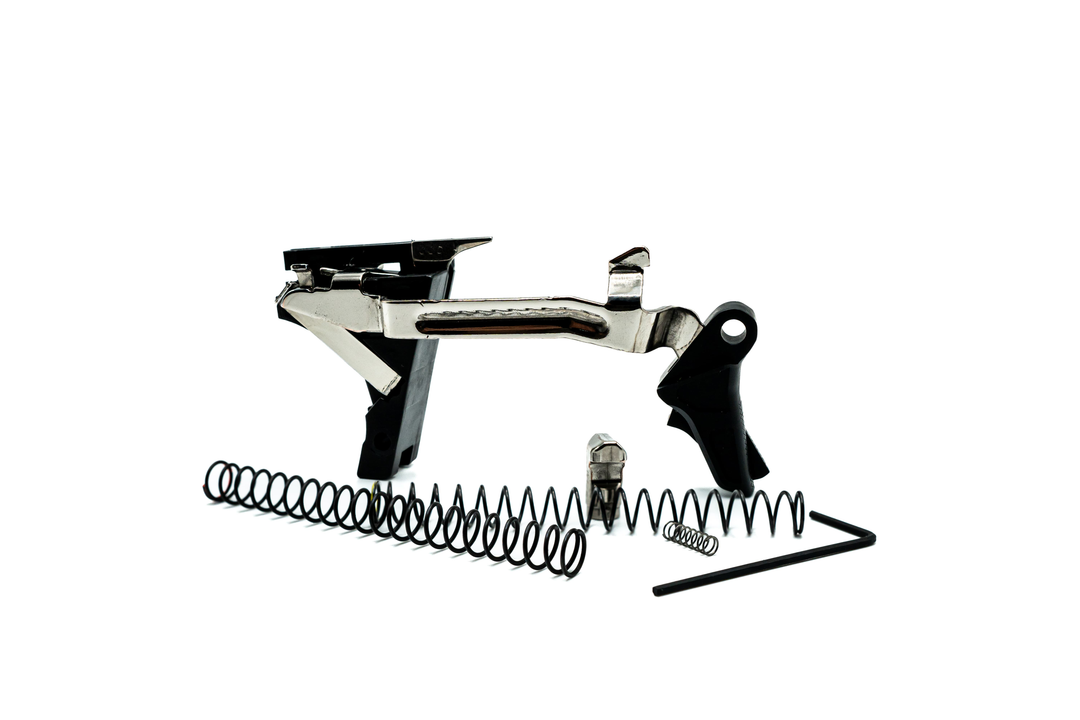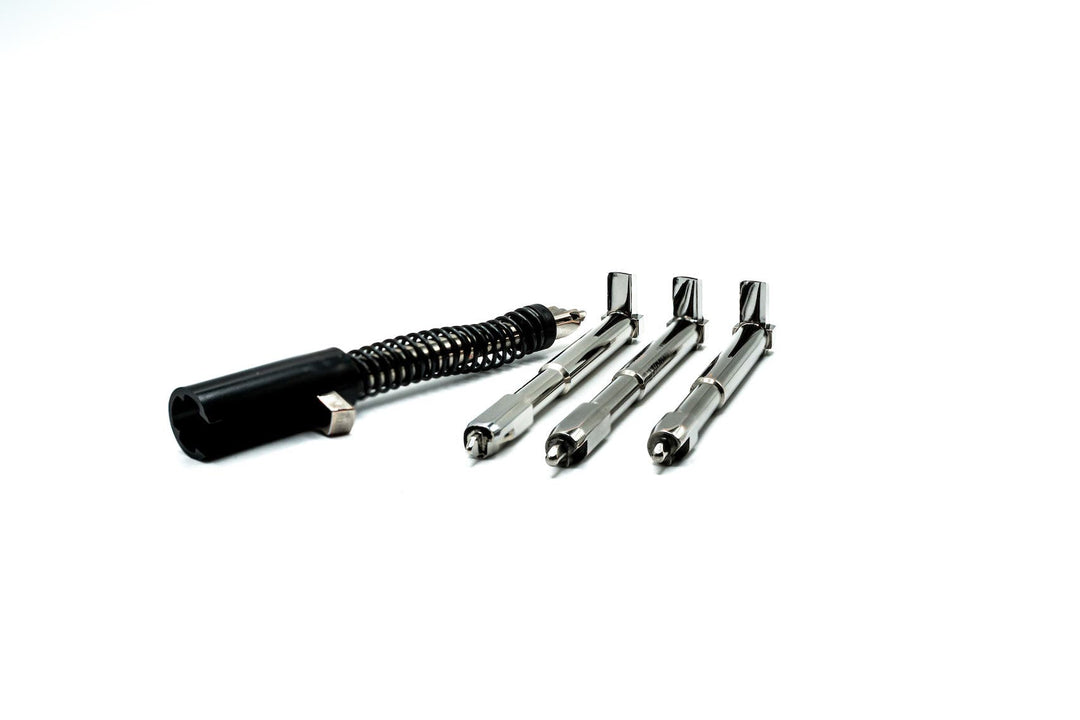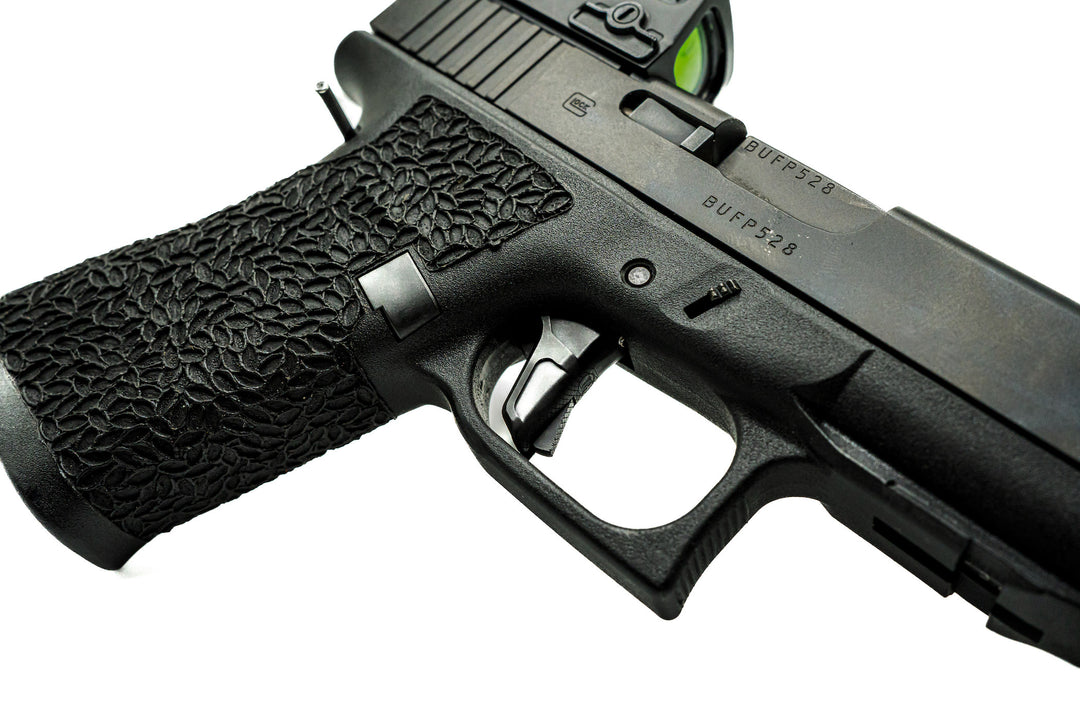Unsafe Glock Trigger: What to Look For (And How to Fix It)
Video Walkthrough: Watch on YouTube
A trigger job turned into a full-blown safety deep dive. In this post, Johnny breaks down how to identify a gritty, unsafe Glock trigger, what red flags to look for, and step-by-step fixes. From diagnosing wear patterns to swapping parts, tuning reset, and dialing in over-travel, this is hands-on shop work with real lessons on safety and performance.
Jump to a Section
- 00:43 – Trigger Safety Red Flag
- 01:40 – Diagnosing the Trigger Drag
- 03:55 – Why Oil Can Damage Your Glock
- 05:23 – Starting the Fix: Part Swap Begins
- 08:42 – Real Talk on Negligent Discharges
- 14:58 – Evaluating Aftermarket Striker Parts
- 18:06 – Machining Flaws on the Striker Lug
- 24:07 – Fine-Tuning Trigger Reset & Over-Travel
Spotting an Unsafe Glock Trigger
The first red flag was gritty, inconsistent trigger travel. Any time the trigger safety isn’t engaging or feels rough, that’s a warning sign that something’s off. This can point to drag or wear in the striker and connector system that needs immediate attention.
Diagnosing the Problem
Johnny examined the trigger components for wear patterns and striker lug geometry. Excessive friction and poor machining can lead to dragging, which compromises both performance and safety. Oil only masks the issue temporarily—it doesn’t fix bad geometry or wear.
Fixing It: Step by Step
The fix started with swapping out compromised parts, checking engagement angles, and rebalancing the system. Johnny also tuned the reset and over-travel to bring the trigger back into spec. These adjustments restored both smoothness and safety.
Lessons on Safety
One of the biggest takeaways: a poorly set up Glock trigger can lead to negligent discharges. Many aftermarket striker parts look promising but often have machining flaws that introduce new problems. Always evaluate carefully before swapping in third-party parts.
Final Tune
With the right parts and careful tuning, the trigger was brought back to safe, reliable function. Reset was consistent, over-travel minimized, and the striker lug geometry corrected. This is the kind of shop work that keeps performance high while making sure safety stays intact.
Tags: Glock Trigger Safety, Unsafe Glock Trigger, Glock Reset Tuning, Striker Lug Fix, Glock Trigger Job










